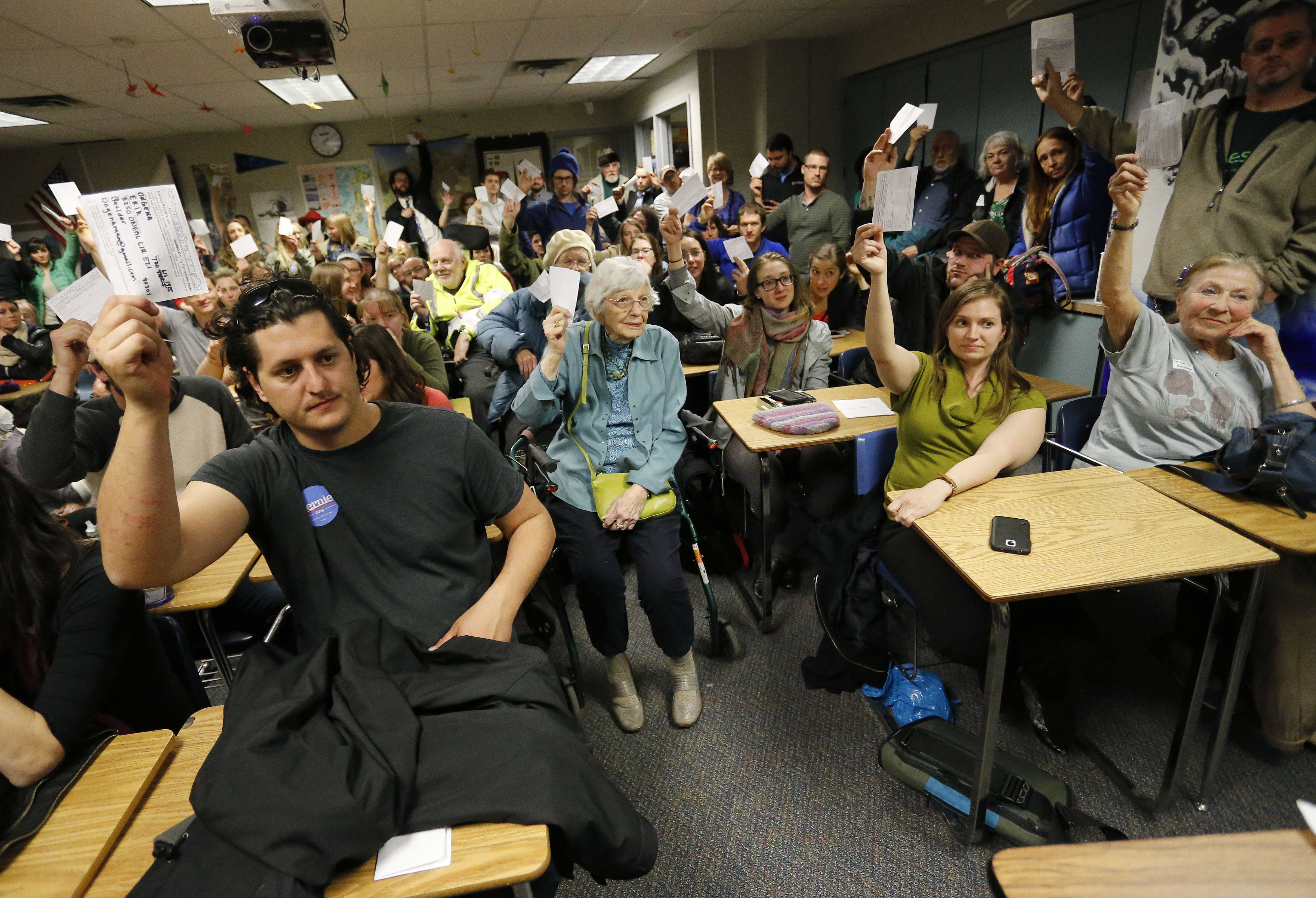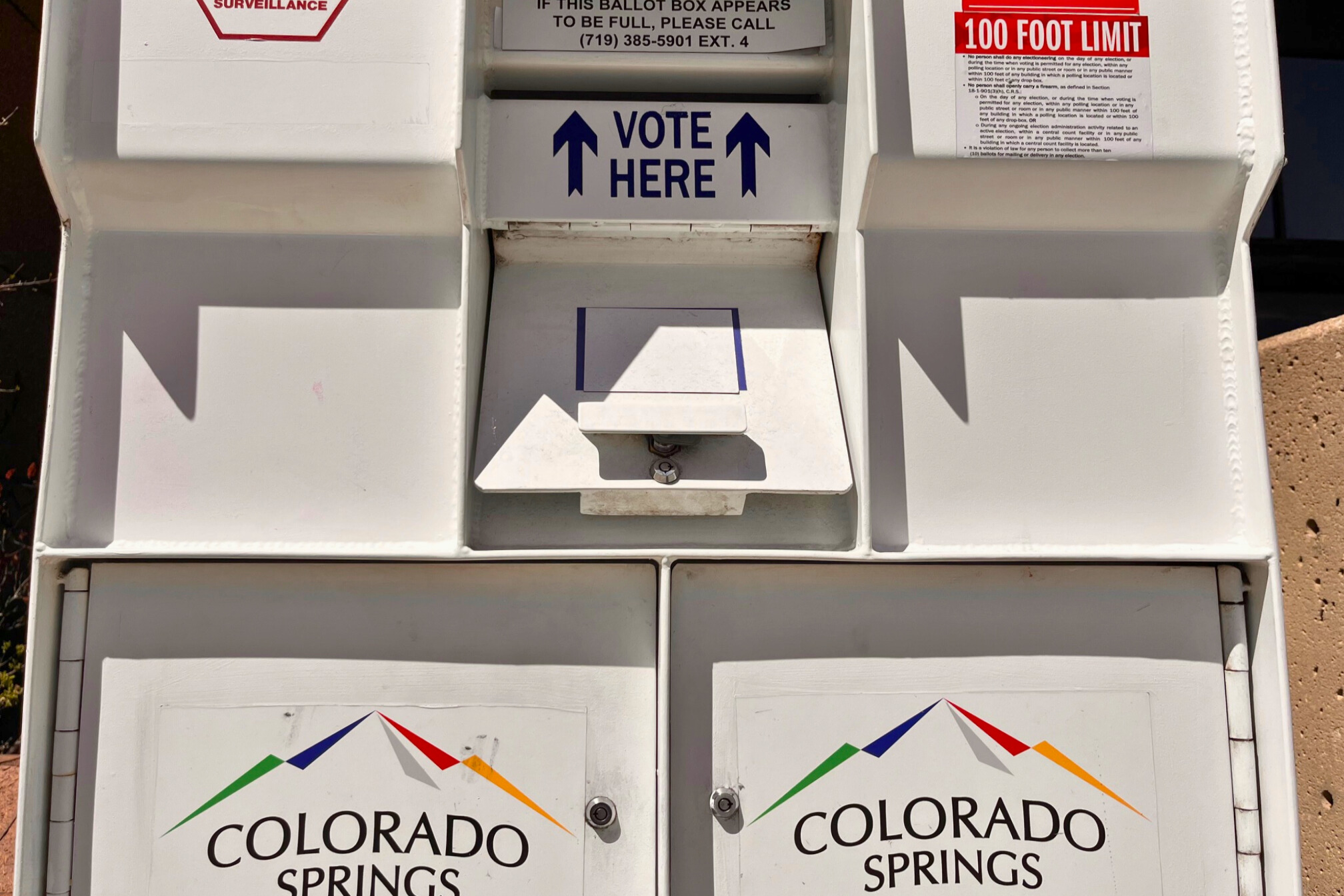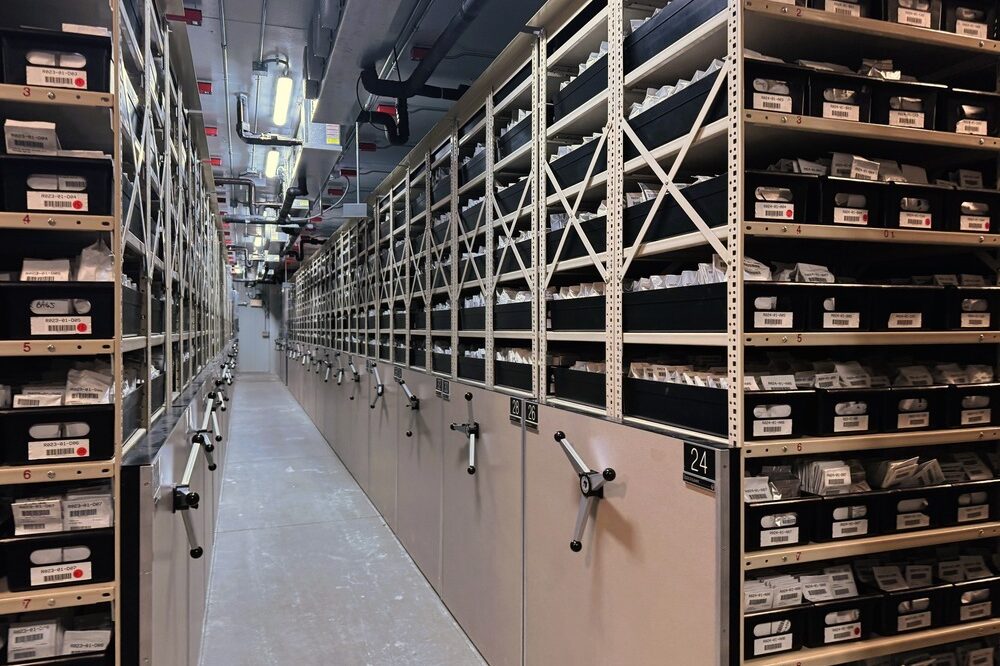
This week, NPR and some member stations are reporting on what the 2016 primary season has revealed about voters' confidence in the American electoral system. It's a project we're calling A Nation Engaged.
For the past three years, Colorado's largest political party has been no party at all; 34 percent of all active voters in the state are unaffiliated.
One of those voters is Richard Green.
“Neither of the major parties in the country represent my views well,” Green said near a smattering of food trucks in Civic Center Park earlier this week. “And the third parties are a little fringy and radical to put my name next to.”
Staying unaffiliated means that come primary time, Green can only spectate; both Colorado’s presidential caucus and its state primaries are restricted to party members. That leaves him feeling like he has less of a voice in Colorado’s politics.

“There’s more nuance when you’re picking from the primary candidates. So, yeah, it would be a little better if unaffiliated voters could vote in primaries here,” said Green.
The Push For Change
It just so happens that some powerful interests in the state also think unaffiliated voters don't get enough of a say in the political process. The Denver Metro Chamber of Commerce is spearheading a pair of initiatives to move Colorado to a presidential primary and to open that and state office primaries to independent voters.
The chamber’s interest in election law bubbled up from a series of focus groups it held with local business leaders a few years ago, asking what issues are most critical to address in the next decade to ensure Colorado’s economic future.
“One of them was, you really need to engage all voters in Colorado’s elections. And that middle, kind of pragmatic voter, is not engaged,” said the Chamber’s CEO Kelly Brough.
Some of the hope behind getting unaffiliated voters involved in primaries is that it might ease the political gridlock in Washington, D.C., and Denver.
“There’s a lot of room to solve issues if you’re not only trying to solve it for 8 percent of each extreme on the political spectrum,” said Brough. She says she hears all too often from state lawmakers that they’d be willing to compromise more, if it didn’t leave them vulnerable to a primary challenge.
So far the Chamber has invested $100,000 in this effort, with a handful of individual business leaders and philanthropists also making big money contributions to Let Colorado Vote, the group pushing the measure.

They’re hoping one dividend will be a more moderate state legislature, but they may have misread the market. Researchers disagree over how much open primaries really affect who gets elected.
University of Denver political science professor Seth Masket researched exactly this question: Do open primaries lead to more bipartisanship? And after examining two decades of data from all 50 state legislatures, Masket's conclusion was no.
Part of the problem, he says, is turnout; unaffiliateds tend to vote at lower rates than party members, especially in primaries. And even when they do, they still may not find a compromiser on their ballot.
“Parties tend to be very active in picking the sorts of people they like, and giving them real advantages, in terms of fundraising, in terms of endorsements, and helping those people win in primaries,” said Masket. “And that tends to be true whether it’s an open or a closed system.”
The Purpose Of Parties
For many party members, and leaders, open primaries present an existential threat: undermining the whole purpose of political parties.
“The party needs to be able to select their nominee. When you have an open primary, you really diminished that selection process,” said state Sen. Kevin Lundberg, R-Berthoud. He’s part of a group of Republican state Senators holding public hearings to consider potential changes to Colorado’s role in the presidential selection process.
The ballot measure in the works would technically create semi-open primaries. Democrats and Republicans could only vote the ballots of their respective parties. Independent voters though would get a ballot that let them choose which party’s primary to vote in, although they would have to stick with one party for all races.
State lawmakers tried to head off the initiative by introducing a bill this past session to make it easier for independent voters to temporarily affiliate with a party to vote in its primary. That failed. But Democratic state Party Chair Rick Palacio argues temporary affiliation might actually make Colorado elections as a whole run more smoothly, by giving campaigns a better idea of where so-called independent voters stand politically.
“Modern campaigns are really based on data, and it’s based on targeting and tracking of voter behaviors. The more information that we know, the less resource that we have to spend in trying to further identify people and then get them out to vote,” said Palacio.
A lot of voters would probably be happy to hear less from the campaigns during the general election. But for many of Colorado’s unaffiliated voters, the real priority is to get their voices heard much earlier in the process.









